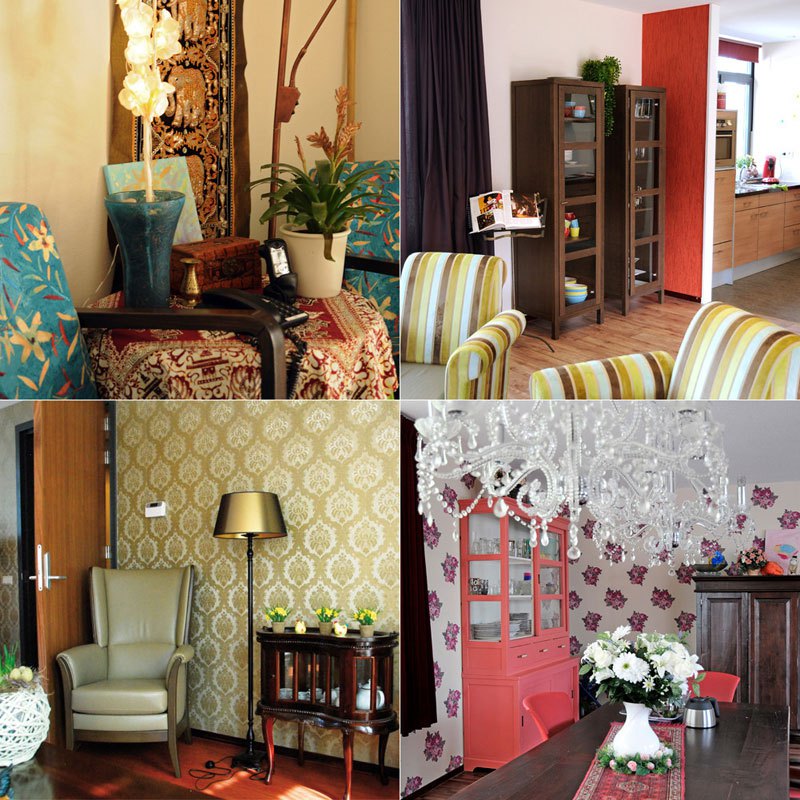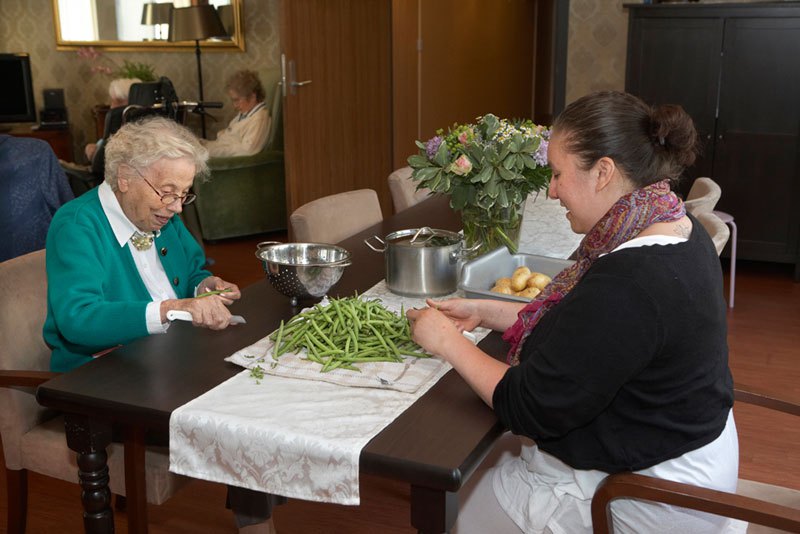Images from the award-winning facility:


Photograph by Madeleine Sars, Eindhoven

Photograph by Hans Erkelens, Flickr

Drawing by Niek Roozen, Weesp

Drawing by Molenaar&Bol&VanDillen Architekten

Photograph by Hans Erkelens, Flickr
According to The Atlantic:“Residents are cared for by 250 full and part-time geriatric nurses and specialists. All helping create a community and hold a myriad of occupations in the village, like cashiers, grocery-store attendees, and post-office clerks. Finances are often one of the trickier life skills for dementia or Alzheimer’s patients to retain, which is why Hogeweyk takes it out of the equation. Everything is included in the family’s payment plan, and there is no currency exchanged within the confines of the village.”


Photograph by Anita Edridge
To maintain the “fake reality” (hyperreality) that those living at Hogeweyk are comfortable with staff do not seek to correct the residents when talking about memories, background and history. At the same time, the staff will not deceive the patients if directly asked, truthfully stating that the residents are in a place where they can receive required care for their condition. Because of the nature of Alzheimer’s disease and dementia, the sufferers remember the distant past, rather than the present, so even truthful answers given by the staff will be forgotten quickly. source>
Photograph by KopArt, Amstelveen

Photograph by Madeleine Sars, Eindhoven

Photograph by Madeleine Sars, Eindhoven

Photograph by Madeleine Sars, Eindhoven





